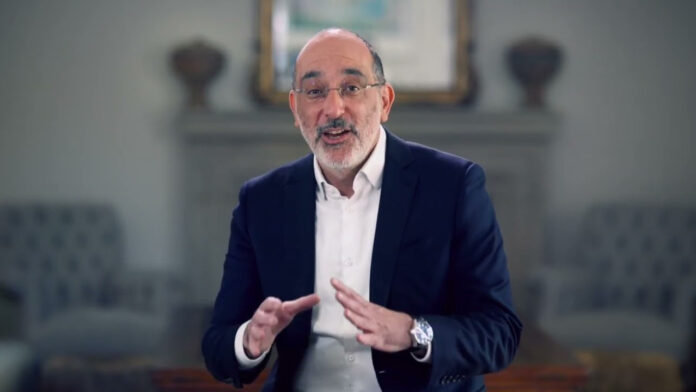Supporters of Hamas’ terrorism have been using every venue they can to harm Israel, including international courts. That impulse lay behind South Africa’s recent complaint against Israel in the International Court of Justice, accusing it of genocide in Gaza. Israel is a signatory to the court, a UN body based in The Hague, and it was therefore required to defend itself against the charges.
A preliminary decision, basically deciding whether there is any reason to suspect genocide, is expected within a month. Germany has said that it will join the case to defend Israel, though that will only be in the longer case if the court finds a reason to go forward.
If South Africa has taken this anti-Jewish step to prevent Israel from defending itself, what is it like for South Africa’s Jews? To find out, I spoke with Rabbi Dr. Warren Goldstein, the chief rabbi of South Africa.
We last spoke about the Shabbos Project, the movement you began in 2013 that aims to inspire Jews around the world to observe Shabbos. But lately you’ve had your hands full with some negativity. Would that be a fair statement?
I would say that I’ve had my hands full in a battle against the anti-Israel forces in South Africa, led of course by the South African government.
Do you translate those anti-Israel forces as being anti-Semitic?
I don’t know what’s in people’s hearts, and I can’t judge what’s there, but I do know that the actions of the South African government are anti-Semitic in targeting Israel. Moreover, the stigmatization of Israel with the genocide allegations promotes global anti-Semitism, as it leads to the stigmatization of Jews. Because if Israel is guilty of genocide and we support Israel, then by extension we deserve to be stigmatized.
South Africa is now defending the devil, so to speak. They are friends with Hamas, and South Africa is the only country thus far to bring this case to The Hague. What do you think brought this about? Why South Africa, of all countries?
There are two factors at play here. One is that this is an election year in South Africa. Elections are going to be held in the next six to nine months. The ruling ANC Party has lots of domestic failures and problems, and they are looking for ways to distract people from that. Secondly, and much deeper, is South Africa’s alliance with Iran. They’ve also had a relationship with Hamas that dates back to 2007, when they welcomed a Hamas delegation. But their relationship with Iran is very close.
About a week or so after October 7, the South African foreign minister went for a visit to Tehran, and President Ramaposa was the one who led the charge to get Iran included in the BRICS grouping. So they have a connection there, and a lot of what has happened in this war goes back to Iran. It’s not really a war with Hamas, it’s a war with Iran. The war is being fought on the physical battlefields, but it’s also being fought on the political battlefield. Iran is using South Africa to do this because of the history of the anti-apartheid movement; they’re trying to use some of that credibility. And the South Africans very cleverly chose the United Nations as the platform to attack Israel, because the United Nations, as we know, is stacked against Israel, particularly in the General Assembly. The International Court of Justice is appointed by the General Assembly, so this so-called court is really just a UN body. Therefore, this is just politics.
So what’s really happening is a strategy of looking to isolate Israel globally in order to weaken its ability to defend itself. That’s part of the broader Iranian plan, to drive America out of the region and to destroy Israel. Realizing that even though Israel has the firepower to win the war, if it loses the battle for public opinion and support in Western capitals, that will greatly reduce its ability to defend itself.
To read more, subscribe to Ami





















